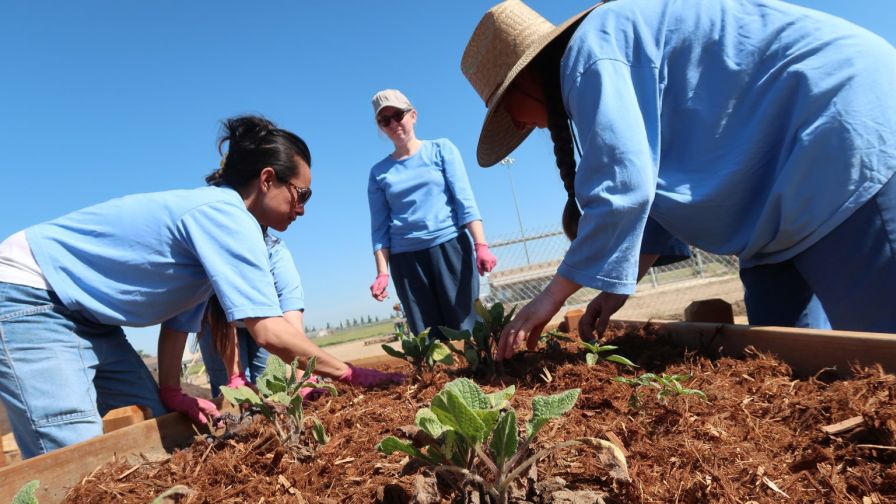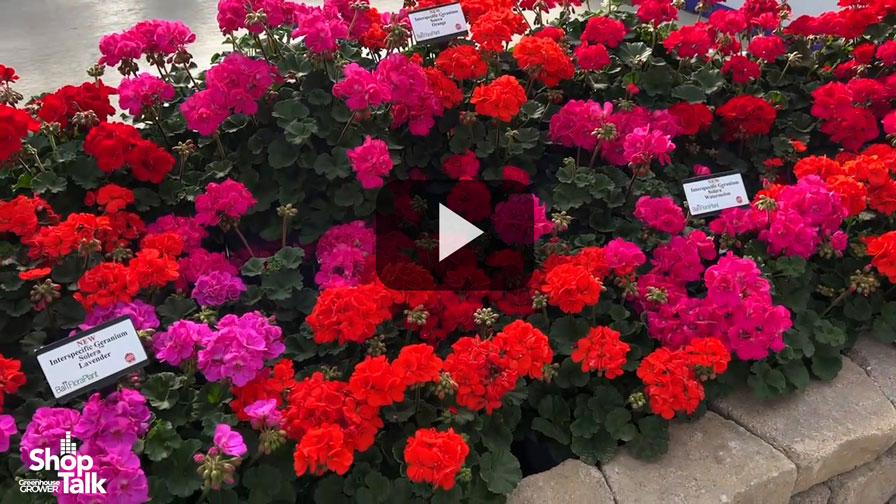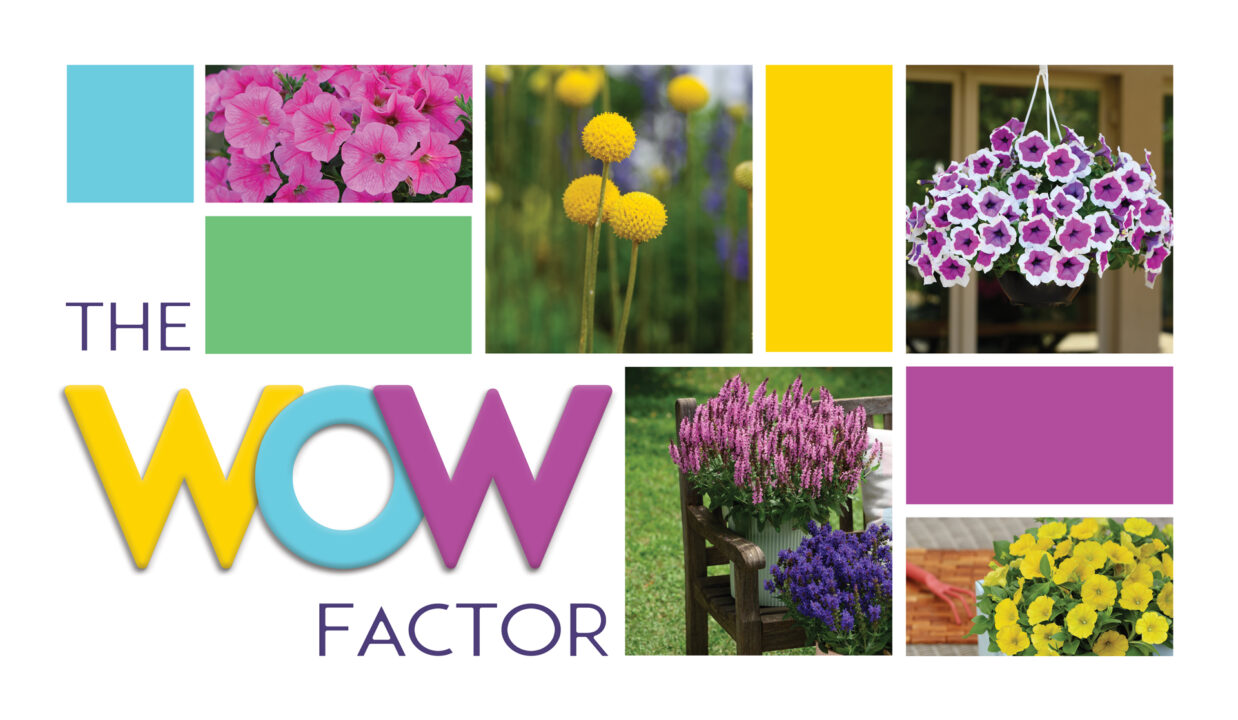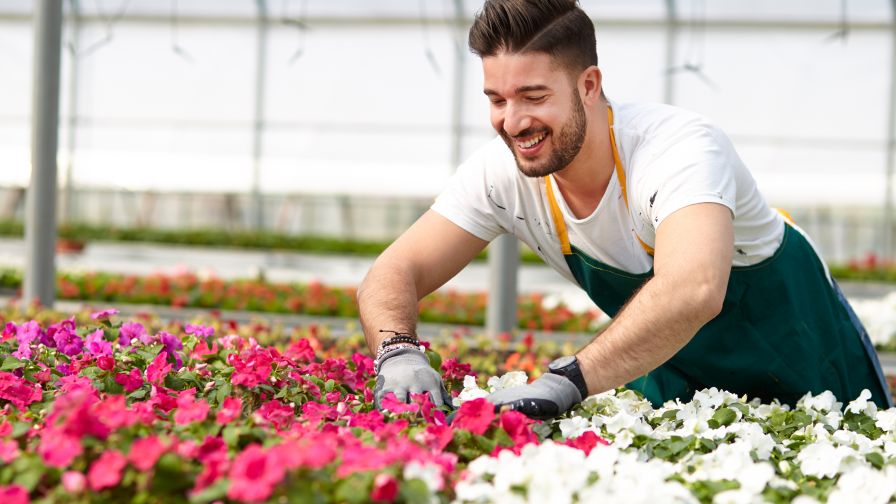Students Pursue Passions Through Horticultural Research Institute Scholarships
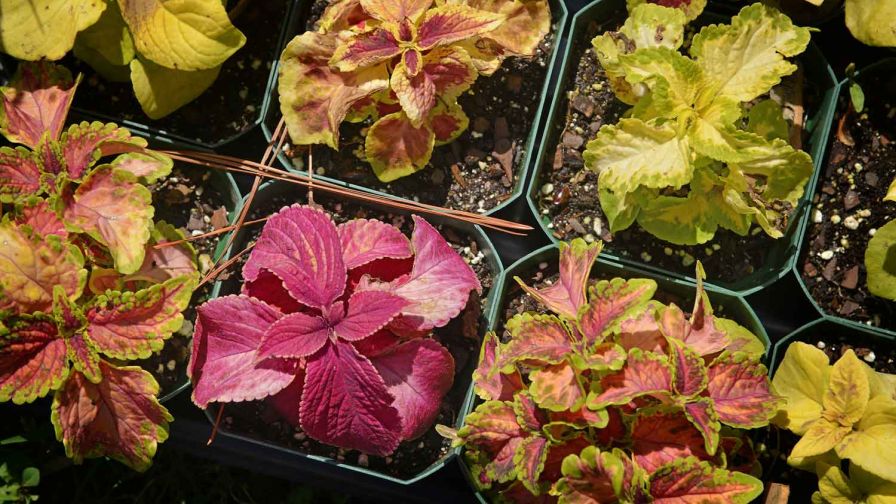
Ornamentals | NC State
Three students at North Carolina State University, at different levels of their educational journeys, have been recipients of Horticultural Research Institute (HRI) scholarships. Debasish Paul is a doctoral student whose work focuses on sustainability in supply chains. Lauren Staley is an undergraduate student working towards her bachelor’s degree while involved in plant nursery internships. Ramsey Arram is a master’s post-graduate student who aims to expand his expertise in ornamental plant breeding after working as a lead grower and cataloging wild plants. Here’s a look at their journeys in the field of horticulture, how they learned about the HRI scholarship, and their advice for other horticulture students seeking scholarships.
Debasish Paul – Doctoral Student
Debasish Paul was born and raised in Bangladesh, which holds excellent conditions for crop production, but poor economic conditions for the sale of such products. This situation plaguing many of his countrymen inspired Paul to find a solution, leading to his pursuit of “a Master’s in Agricultural Production Chain Management, specializing in horticultural chains at the Van Hall Larenstein University of Applied Sciences in the Netherlands,” according to NC State University.
During his time in The Netherlands, Paul studied Litchi chinensis (lychee) supply chains, finding a market demand for food processing and postharvest management for the fruit. This further ignited his interest in supply chain research, which led to him pursuing his doctorate in horticultural science at North Carolina State University, studying sustainability practices of floriculture supply chain.
Paul learned about the HRI scholarship through Graduate Services Coordinator Rachel McLaughlin, who shared emails about the subject with Department of Horticultural Science students. He says, “This scholarship has been key to my academic journey, providing the necessary support for me to continue my research and contribute to the field of horticulture.”
Currently, Paul’s research focuses on the supply chain of annual bedding plants in America. The study, including a nationwide survey to properly identify the key roles within the chain, “will be instrumental in guiding stakeholders to enhance their business-to-business collaboration and meet consumer demand sustainably.”
Additionally, he is conducting a study to gauge consumer preferences for sustainability attributes in the industry. He hopes that the results will help stakeholders adopt practices to make their businesses more sustainable and appealing to their consumer base.
Lauren Staley – Undergraduate Student
Lauren Staley is a transfer student to NC State, having first started her academic journey at Alamance Community College (ACC) in Graham, NC. In high school, she was involved with Futures Farmers of America (FFA), where she initially developed an interest in animal science. However, she decided to explore ACC’s horticulture program after hearing about its laurels from positive word of mouth. There, she swiftly fell in love with the field, planning to complete her associate’s degree in horticulture at ACC and her bachelor’s at NC State University.
“It didn’t take me long to realize that this field resonated with me on a profound level, igniting my undiscovered passion.”
During her time at ACC, Staley was guided by Dean Elizabeth Riley of the horticulture department, who introduced her to many scholarship opportunities, including that of the Horticultural Research Institute.
Staley completed an internship at Plantworks Nursery during her time at ACC and is currently in the process of her second internship at Greenleaf Nursery Company.
Ramsey Arram – Master’s Post-Graduate Student
Ramsey Arram initially earned a degree in biology, concentrating on botany and environmental science, at the University of North Carolina-Pembroke in 2004. From there, Arram began working on several farms, homesteads, and nurseries in California and North Carolina. All the while, he began developing ethnobotanical guides for wild plants in each state.
“Throughout my career, I fell in love with being a lead grower and also the resilience of wild plants. These two passions were hybridized when Assistant Professor Hsuan Chen agreed to be my advisor for my Master of Horticultural Science degree.”
Arram found the HRI scholarship directly through the institute’s website. “Then I was contacted by Dale Deppe, the owner of Spring Meadow. We had a good conversation about how he started the company. It’s important to write a short biography about your inspiration and academic path.”
As a member of NC State’s master’s program, Arram has a lot of projects and research on his plate. According to him, “Some of the breeding projects I work on are to bring the resilience of wild plants into our ornamental crops and domesticated food crops. Other projects include traditional breeding methods to create cultivars such as Hibiscus. We often implement polyploidy induction which can overcome fertilization barriers, induce sterility, or result in interesting and favorable characteristics.”
Advice to Students Seeking Horticulture Scholarships
“As a crucial first step, I urge all students to regularly check for scholarship opportunities shared by our department and posted on the HRI website,” says Paul. “It’s vital to initiate the application process as early as possible to give yourself ample time for preparation. Before applying, carefully read the scholarship description to ensure you meet all the eligibility criteria. Take the time to review your application thoroughly before submitting it.”
Additionally, Paul stresses that each application should be unique, effective, and clear in its presentation, to catch the attention of the scholarship committee but not confuse them. He also strongly advises against waiting until the last moment before a deadline to submit a scholarship application.
“While the initial step of filling out the submission forms may seem daunting to some, it is crucial to recognize the great benefits they offer,” says Staley. “A common misconception, one I used to face, is that with the application comes lengthy essays, deterring many from even attempting to apply. However, it is important to note that not all scholarships require extensive writing. For instance, programs like HRI offer a process where a single general application form can potentially apply to numerous scholarships across various foundations.”
Additionally, despite the hurdle that some pose, Staley stresses that the financial support that scholarships provide is incredibly beneficial, not only easing financial burdens but also providing positive motivation for their future.
“Passion, dedication, contribution, and details were expressed with vitality in my HRI Spring Meadows scholarship application,” says Arram. “I would make sure to express your passions, the scientific details, and short-term and long-term goals.”





